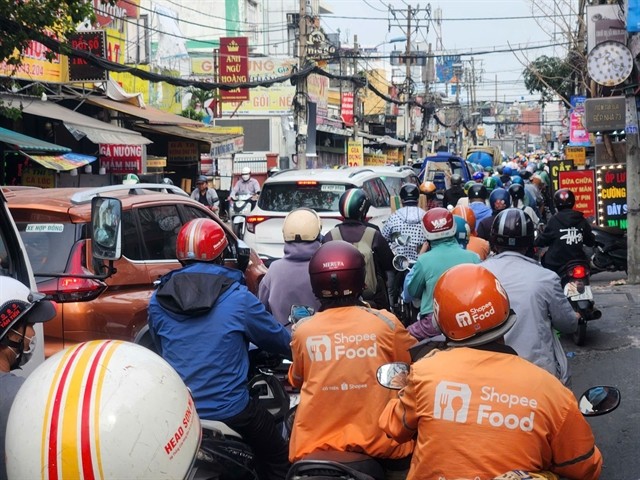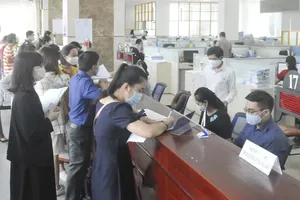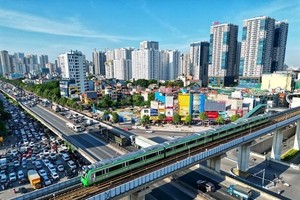
The Department of Trade in Ho Chi Minh City is strengthening collaborations with relevant sectors and closely monitoring activities of local enterprises to ensure the smooth transportation of goods to meet market demand as the Lunar New Year holiday (Tet) approaches.
Bui Ta Hoang Vu, director of the Ho Chi Minh City Department of Trade, emphasised that through this co-operation and supervision, the department will work with relevant local units to advise the city's People's Committee and propose solutions to relevant ministries to address challenges, ensuring a stable supply of goods before and during Tet.
The department's announcement comes amidst a significant surge in demand for products in the days leading up to Tet. Notably, traffic congestion in the city has been a recurring issue, causing difficulties for goods delivery.
As the Lunar New Year approaches, businesses and retailers in Ho Chi Minh City face many obstacles in shipping goods to customers.
Many companies and retailers in the city have reported challenges in delivering goods to customers due to increased purchasing, particularly in online shopping, and the current poor traffic conditions.
For example, Vu Bich Hang, an online seller in Ho Chi Minh City, shared her struggles in finding delivery services amid the current challenges. The delivery fee from her shop to District 7 has increased from VND40,000 to VND100,000. Despite the significant surge in rates, it has been difficult to find available delivery services on ride-hailing apps.
Companies and retailers are making every effort to ensure a steady supply of goods and timely deliveries to consumers.
Le Hoang Phong, deputy director of Hoc Mon Agricultural Product Wholesale Market in Ho Chi Minh City, forecasted that in the last five days of Lunar Year 2024, the volume of fruits and vegetables at the wholesale market will increase by 50 percent, equivalent to 3,500 tons per day. Additionally, on the 26th and 27th of the Lunar December, the quantity of pork products is expected to increase by 100 percent, equivalent to 10,000-11,000 pigs per night.
However, if serious traffic congestion persists or worsens, it could pose challenges to market stabilisation efforts.
He highlighted that around 50 percent of fresh pork in Ho Chi Minh City comes from the market, emphasising the importance of ensuring sufficient output to prevent disruptions in the supply chain and market stability.
Therefore, he stressed, if this source does not ensure sufficient output to the market during peak days, it can disrupt the supply chain, affecting market stability. Coupled with transportation issues, spontaneous trading activities around the Hoc Mon wholesale market area also pose certain challenges to supplying goods and stabilising the market.
Echoing this sentiment, Le Truong Son, deputy general director of Saigon Co.op, acknowledged the impact of transportation on essential goods, particularly fresh food before Tet.
He noted that the delivery operations, including Saigon Co.op's large trucks, are currently facing difficulties, with risks of delays or partial deliveries.
He emphasised that one of the most critical issues for distribution and retail during festive periods is goods distribution and delivery, especially for fresh food products that require high standards of preservation.
Although the business unit is always proactive in responding to market changes, high standards of preservation are required for the category of fresh food products, he said.
Currently, as online shopping is popular, many shops and retailers use shipping services through ride-hailing apps to deliver to consumers. Therefore, with the escalating traffic congestion in recent days, deliveries reaching consumers have been delayed, leading to stockpiling.
Many distribution and retail units in Ho Chi Minh City have suggested that relevant ministries and local authorities need to promptly come up with solutions to support businesses and retailers with more convenient transportation and the circulation of consumer goods to serve the Tet market, as well as in delivering orders to consumers.
While businesses always have contingency plans for transportation, distribution, and delivery, the complex situation this year requires the co-ordinated involvement of Government agencies across sectors.
























